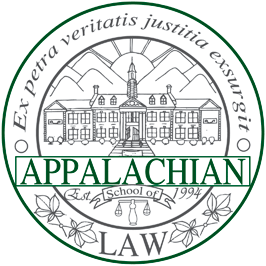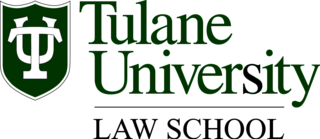Dispute resolution or dispute settlement is the process of resolving disputes between parties. The term dispute resolution is conflict resolution through legal means.

Mediation is a negotiation facilitated by a third-party neutral. It is a structured, interactive process where an impartial third party, the mediator, assists disputing parties in resolving conflict through the use of specialized communication and negotiation techniques. All participants in mediation are encouraged to actively participate in the process. Mediation is a "party-centered" process in that it is focused primarily upon the needs, rights, and interests of the parties. The mediator uses a wide variety of techniques to guide the process in a constructive direction and to help the parties find their optimal solution. A mediator is facilitative in that they manage the interaction between parties and facilitates open communication. Mediation is also evaluative in that the mediator analyzes issues and relevant norms ("reality-testing"), while refraining from providing prescriptive advice to the parties.
Online dispute resolution (ODR) is a form of dispute resolution which uses technology to facilitate the resolution of disputes between parties. It primarily involves negotiation, mediation or arbitration, or a combination of all three. In this respect it is often seen as being the online equivalent of alternative dispute resolution (ADR). However, ODR can also augment these traditional means of resolving disputes by applying innovative techniques and online technologies to the process.

The Appalachian School of Law (ASL) is a private law school in Grundy, Virginia. It is accredited by the American Bar Association and offers a three-year Juris Doctor degree to approximately 128 full-time students. The school was founded in 1994 and admitted its first class of students in August 1997. ASL was started and brought to Buchanan County, Virginia as a tool of economic development for the region. ASL emphasizes professional responsibility and alternative dispute resolution in its curriculum.

Patrick Errol Higginbotham is an American judge and lawyer who serves as a Senior United States circuit judge of the United States Court of Appeals for the Fifth Circuit.

Vanderbilt University Law School is the law school of Vanderbilt University. Established in 1874, it is one of the oldest law schools in the southern United States. Vanderbilt Law enrolls approximately 640 students, with each entering Juris Doctor class consisting of approximately 175 students.
In United States law, multidistrict litigation (MDL) refers to a special federal legal procedure designed to speed the process for handling complex cases with numerous plaintiffs making similar claims, such as air disaster litigation or complex product liability suits.

The Pepperdine University School of Law is the law school of Pepperdine University, a private research university in Los Angeles County, California. The school offers the Juris Doctor (JD), and various Masters of Laws (LLM) options in Dispute Resolution, International Commercial Arbitration, United States Law, and Entertainment, Media, and Sports Law. The school also offers joint degrees with its JD and Master of Dispute Resolution (MDR) in partnership with other Pepperdine University graduate schools. The school offers an online Master of Legal Studies program and an online Master of Dispute Resolution program.

Tulane University Law School is the law school of Tulane University. It is located on Tulane's Uptown campus in New Orleans, Louisiana. Established in 1847, it is the 12th oldest law school in the United States.
The Civil Mediation Council (CMC) is the recognised authority in England and Wales for all matters related to civil, commercial, workplace and other non-family mediation. It is the first point of contact for the Government, the judiciary, the legal profession and industry on mediation issues.

Frank E. A. Sander was an American professor emeritus and associate dean of Harvard Law School. He pioneered the field of alternative dispute resolution and is widely credited with being a father of the field in the United States as a result of his paper, The Varieties of Dispute Processing, presented at the Pound Conference in 1976 in Minneapolis, Minnesota. Sander's book, Dispute Resolution: Negotiation, Mediation, and Other Processes, which he coauthored with Stephen B. Goldberg, Nancy H. Rogers, and Sarah Rudolph Cole, is used in law schools throughout the United States.
The terms legal case management (LCM), legal management system (LMS), matter management or legal project management refer to a subset of law practice management and cover a range of approaches and technologies used by law firms and courts to leverage knowledge and methodologies for managing the life cycle of a case or matter more effectively. Generally, the terms refer to the sophisticated information management and workflow practices that are tailored to meet the legal field's specific needs and requirements.
Alternative dispute resolution (ADR), or external dispute resolution (EDR), typically denotes a wide range of dispute resolution processes and techniques that parties can use to settle disputes with the help of a third party. They are used for disagreeing parties who cannot come to an agreement short of litigation. However, ADR is also increasingly being adopted as a tool to help settle disputes within the court system.
William T. Dzurilla, formerly William T. D'Zurilla, is a retired American attorney. He was a law clerk for Justice Byron White of the United States Supreme Court from 1982 to 1983. He played a key role in the privatization of major state-owned businesses in Slovakia.
The Arbitration Roundtable of Toronto is made up of several litigators, academics, arbitrators, and mediators from the Greater Toronto Area. The group promotes arbitration as an alternative method of conflict resolution over litigation, especially in commercial suits. Members include commercial litigators from Toronto law firms including some of the Seven Sisters of Bay Street. Each member has experience and interest in promoting commercial Arbitration. The group dedicates its time to encouraging this form of Dispute resolution through seminars, papers, and talks.

The Tulane Law Review, a publication of the Tulane University Law School, was founded in 1916, and is currently published five times annually. The Law Review has an international circulation, and is one of few American law reviews carried by law libraries in the United Kingdom.

eQuibbly is an online dispute resolution (ODR), offering individuals and companies in the U.S., Canada, and other countries that are signatories to the Convention on the Recognition and Enforcement of Foreign Arbitral Awards. This is a private and legally binding alternative to pursuing litigation in court. eQuibbly was an Online Dispute Resolution service in North America focused exclusively on online arbitration. It ceased operations in 2016.
Business courts, sometimes referred to as commercial courts, are specialized courts for legal cases involving commercial law, internal business disputes, and other matters affecting businesses. In the US, they are trial courts that primarily or exclusively adjudicate internal business disputes and/or commercial litigation between businesses, heard before specialist judges assigned to these courts. Commercial courts outside the United States may have broader or narrower jurisdiction than state trial level business and commercial courts within the United States, for example patent or admiralty jurisdiction; and jurisdiction may vary between countries. Business courts may be further specialized, as in those that decide technology disputes and those that weigh appeals. Alternative dispute resolution and arbitration have connections to business courts.

John K. Trotter Jr. is an American jurist who served for 5 years as the Presiding Justice of the California Court of Appeal, Fourth Appellate District, Third Division. After 1987, he was a major contributor to the advancement of Alternative Dispute Resolution (ADR) as one of the founding members of JAMS.

Michael J. Kaufman is an American legal scholar who is the Dean and a Professor of Law at Santa Clara University School of Law. He previously served as Dean of Loyola University Chicago School of Law, where he also held several administrative positions at Loyola University Chicago, including Acting Provost and Chief Academic Officer and Vice Provost for Academic Strategy. His research and teaching focuses on education law, equity, policy, and pedagogy; securities regulation and litigation; and civil procedure and dispute resolution.









